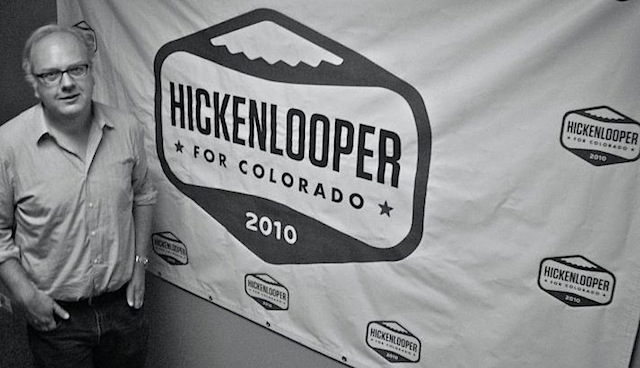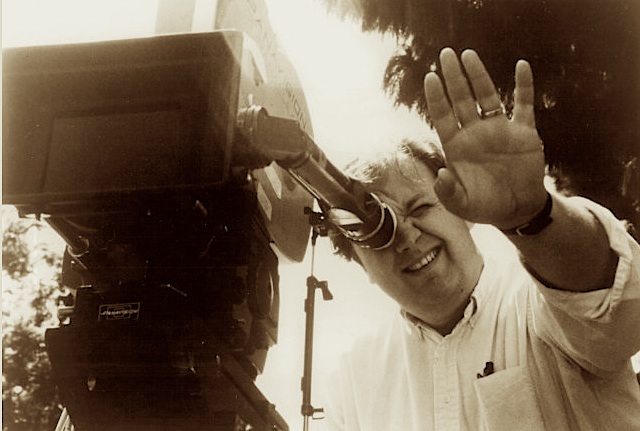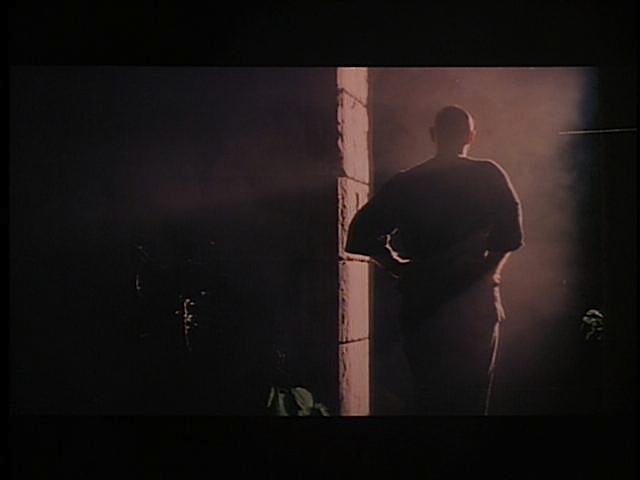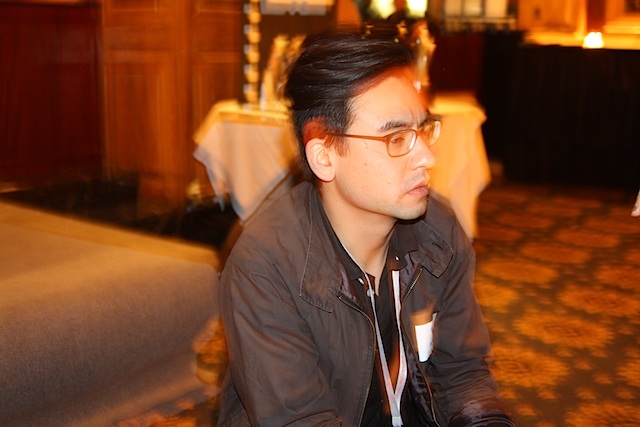Movie City Indie Archive for October, 2010
“I wasn’t what you’d call an aficionado or anything like that”: John Ford
http://www.youtube.com/watch?v=9iMuWD4ZQ4I&feature=player_embedded
Socks tell the tale. [Thx, serendipitously: Amos Poe.]
George Hickenlooper Was 47
Tributes at Hickenlooper’s Facebook page. His Friday FB update: “Thanks to all my new friends in Austin for making last night’s screening such a great success! I love Austin! One of the if not the best audience in the world. Literally. Hope to come back soon… On to Denver!“
4 Comments »James Cameron Politics Against Oily CA Prop.
With special guest.
1 Comment »DVD: WINTER’S BONE
 Some more interview bits of Debra Granik were scheduled to go here as part of a weekly DVD wrap, but will simmer until I recover from a weekend accident (and get right-hand typing privileges back). In the meantime… most of the plaudits for this tale of determination in the haunted contemporary Ozarks get what’s fine about Granik’s work, as well as from the splendid cast led by Jennifer Lawrence.
Some more interview bits of Debra Granik were scheduled to go here as part of a weekly DVD wrap, but will simmer until I recover from a weekend accident (and get right-hand typing privileges back). In the meantime… most of the plaudits for this tale of determination in the haunted contemporary Ozarks get what’s fine about Granik’s work, as well as from the splendid cast led by Jennifer Lawrence.
Leo Cullum Was 68
They”re still running new Booth cartoons, I figured New Yorker artists never pass, right? Hell, I didn’t even know Thurber was sick. The endearingly dyspeptic Mr. Cullum was 68. A sample from William Grimes’ obit: “In 1966 he was sent to Vietnam, where he flew 200 missions, most in support of ground-troop operations, but at one point he flew secret bombing runs over the Ho Chi Minh Trail in Laos. “Who these were secret from I’m still not sure,” Mr. Cullum told Holy Cross magazine in 2006. “The North Vietnamese certainly knew it wasn’t the Swiss bombing them.”
How To Deal With Cable Customer Service: A Profane Canuck Classic
Even the YouTube screen’s covered with profanity, so you’ll have to go below the fold for it. From Boing Boing’s description: “Via @kellyoxford’s tumblr, this profanity-laden rant from an extremely unhappy Canadian cable subscriber went viral via cassette tape and entertained junior-high-schoolers for years. Warning: LOTS of swearing.” Writes the uploader: “Recorded profanity-laced complaints of a frustrated cable TV customer in Canada to customer service, set to the music from Beethoven’s 9th Symphony. The recording is real. The guy in the clip has a talent for combining filthy swear words into whole sentences. We’ve all been there, frustrated for being neglected by customer service of a telecom or cable company, but this guy takes it to a different level. The ending is priceless.” [Via Boing Boing.]
Crime Does Not Pay!
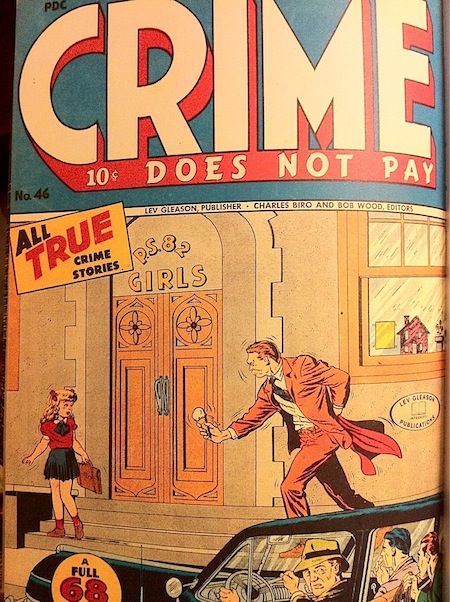 Twit wit: Comics artist Matt Fraction tweeted this bold, old cover from “Lev Gleason Publications”‘ notorious Crime Does Not Pay! title last night with the comment: “Great cover… Or greatest cover? #COMICS!!!”
Twit wit: Comics artist Matt Fraction tweeted this bold, old cover from “Lev Gleason Publications”‘ notorious Crime Does Not Pay! title last night with the comment: “Great cover… Or greatest cover? #COMICS!!!”
Not to leave well enough alone, this morning: “Three of you who retweeted that cover are clearly pedophiles trying to fit in #crimedoesnotpay #neitherdoespedophilia.”
Amusingly enough, Crime Does Not Pay! was one of the early victims of the wave that led to the Comics Code. It makes the grown-up NC-17 fracas over Blue Valentine look, well, more grown-up at least. [Fractional blogging.]
“Don’t Kill Bilbo! Don’t Kill Bilbo!” Protesters Take To NZ Streets
Ari Up was 48
A live version of The Slits’ cover of “Heard It Through The Grapevine.”
Lion Of Canadian Acting, Gordon Pinsent, Declaims From Justin Bieber’s Memoirs
http://www.youtube.com/watch?v=Nhh2288zNVE&feature=player_embedded
One Month, Two Juries
BACK IN EARLY SUMMER, I committed to two time-intensive film juries that I didn’t expect to overlap, all the while keeping on top of daily and weekly assignments. For the Gotham Awards’ “Best Film Not Playing at a Theater Near You,” seven of us had 25-to-30 movies each to preview over the course of a couple of months, with a final conference call across a couple of time zones. As a contributing editor to Filmmaker magazine, I’ve participated for five years, watching movies that had play at festivals but still haven’t secured distribution. (The five finalists will screen at MOMA November 18-22.).
The date and time for the BPNP conference call, after inevitable give-and-take, wound up overlapping with the other commitment, the New Directors Competition for first- and second-time directors at the Chicago International Film Festival. Four film critics, Paris-based Lisa Nesselson, Berliner Reiner Veit and Chicagoan Zbigniew Banas and I, had fourteen films to see in the first week of CIFF. I watched most with other jury members, but one entry could be seen only at a specific screening, with no other opportunities, the German Shahada, a multi-strand narrative about borders, literal and figurative, by 29-year-old director Burhan Burqani. It had debuted at Berlin 2010, a rare feat for a student production, but it was a fresh quantity to me. And when was this screening set? Precisely at the same 90-minute slot as the BPNP conference call. I sent notes for that, went to the screening of Shahada, which, as it turns out, was my favorite of our possible choices, assured, memorable and quietly ambitious. And the final five chosen during the parallel BPNP deliberations make an impressive list, close enough to my own choices. And the deliberations were likely much more efficient with one less voice leaping out of the speakerphone.
Over lunch the next day, deliberations were not as brisk, but we quickly enough concurred on Shahada, with a second notice going to Jonathan Segal’s Norman. For Saturday night’s award ceremony, a few lines to explain our reasons were composed with an ear more to be spoken aloud than read.
It was startling Monday morning to find a 1,200-word article about Burqani on page A6 of the New York and national editions of the New York Times. The film opened in Germany last week, just as Chancellor Merkel had, as the Times’ reporter put it, “added an official imprimatur to the anti-immigrant sentiment that had been the providence of marginal political figures and right-wing ideologues.” The Times quoted two of the three sentences we agreed upon: “In a world packed with narratives that overlap, Shahada pinpoints in precise moments the forces in its characters’ complicated lives—work and love, immigration and Islam. The story is specific to Germany and Europe today, but universal in its implications.” I had no excuse. I confess. I wanted to intone the words “In a world…,” just like in movie trailers, while giving an award a serious drama. But on Saturday, Burqani, fresh off a plane from Berlin, readily topped that. Stepping to the dais, the very young-looking director’s first words were “What. The Fuck. What! The. FUCK!” Seeing the citation quoted in the Times was a smaller kick. But still? Definitely WTF. [Post-CIFF award photo of Burqani: Ray Pride. Trailer here.]
DVDs 10/19: UNBELIEVABLE TRUTH, PLEASE GIVE, FORBIDDEN LIE$, OCTOBER COUNTRY and HOLY ROLLERS
Hal Hartley’s first feature hits its unbelievable twentieth anniversary, and he’s self-releasing a new DVD edition. “The Unbelievable Truth was first released in North America by Miramax Films in 1990 following its highly successful screenings at the Toronto and Sundance film festivals,” reads the press release. “It was a popular release worldwide and came to represent the freshness and audacity of smaller-budgeted independently financed films from America.” Extras include a making-of doc, which is previewed on the website. Interviews include one with Hartley and Adrienne Shelly on-camera together in 2005. When Henry Fool was released 1998, I profiled Hartley for Filmmaker magazine with this introduction: “Relationships and romance: trouble and desire. Thematically and visually, Hal Hartley’s seven features and handful of shorter pieces, are remarkably consistent in tone and mood. In vaudeville, they called it shtick. Film critics see a signature style and are quick to dub the unwitting filmmaker an “auteur.” The Long Island native is aware of the process, prefacing the Faber paperback of the Flirt script with a few words from Jean Renoir: “Everyone really only makes one film in his life, and then he breaks it into fragments and makes it again with just a few little variations each time.” I haven’t seen the new DVD, but like Hartley’s earlier self-distributed releases, it should be a lovely artifact. Plus, I can’t resist that image. [Possible Films, $36]
A brilliant if despairing comedy with glimmers of hope and kindess, Nicole Holofcener’s fourth feature, Please Give, [Sony, $29] is easily her best. In modern-day Manhattan, a few moments ago, Kate (Catherine Kenner) and Alex (Oliver Platt) run a tasteful furniture store stocked through buys at estate sales. Kate worries that her teenage daughter Abby (Sarah Steele) is becoming materialistic while Abby is furious with acne. The couple have bought the apartment of their 92-year-old neighbor Andra (lost, lonely, downhearted Ann Guilbert). The oldest of Andra’s granddaughters who look after her, Mary (Amanda Peet), works in a salon, seems ready for her to croak, while younger granddaughter Rebecca (Rebecca Hall), an x-ray technician who performs mammograms, tall, lithe and lovely, has little drive in her life. For a 90-minute movie, Please Give packs in all kinds of conflict and comedy that would take, well, ninety minutes to describe. As Holofcener’s customary alter ego, Keener’s Kate is riddled with all manner of guilt and doubt and more guilt. So far, so female. But there’s none of the expected uplift in contemporary movies.
Holofcener mutinies: her characters are dastards, stuck in their dastardly daily routine, but also their conception of themselves. In general, the rigid presumes itself pliant: these characters don’t change, but as a writer and director, the writer-director allows them moments, privileged moments, sometimes only instants, really, such as when Peet’s Mary steals momentary refuge on her sister’s ready, unresisting shoulder. Holofcener’s calibration is exacting and momentarily elusive. But behavior recurs. She works as if she’s weaving a cat’s cradle rather than sturdy, expected structure.
Holofcener’s dramatic cadences are sneaky, snaky, seeming aimlessness composed with uncanny cumulative power. Any allusion to Chekhov is likely to blow up in your face by the end of a review, but Andra’s pugnacious refusal of epiphany, turning her back to the autumnal turn of leaves in upstate New York, is wistful in a way reminiscent of “Three Sisters,” when the dream of someday getting to Moscow (or Poughkeepsie) is finally put to rest. A blatant metaphor is turning red and yellow in our faces, yet Holofcener paces it. It’s not only a tidy refusal to face imminent mortality from a “menopausal-orange”-haired woman, but a mix of unspoken sentiment and sentience from the quartet of characters, the scent of the Adirondacks, the simple stutter of a startled intake of breath. Andra moves like a beat-down, dazed spaniel, but one that can still take a bite out of your ankle.
Although she’s not in the scene, it redounds to Peet’s Mary as well, as perma-tan as a venal Congressperson: crisp, crushable like a dry leaf. As the movie begins, Peet is blithe ice. There is a customary caution to screenwriters not to have dialogue “on the nose,” not to be direct, but Peet’s delivery of the line concluding an unsatisfactory affair, “I don’t want to fuck you anymore,” is malefic splendor. Later, the confrontation between Mary and an ex’s current girlfriend on a New York cross-street is exemplary performance: posture, eyes, set of face, and somehow, without directly expressing it, the crumpling of the character’s consistently defensive self-delusion. As a writer of dialogue, Holofcener has a gift for wreaking unlikely commonplaces, phrases with music like Alex’s remark after leaving a nice restaurant: “I don’t know if that place is as good as we think it is, you know what I mean?”
There are jokes like that to be discovered, not repeated in a review. Holofcener is unflinching. And for that, her characters become human. The ending is finite, yet bursting with mystery. Kate makes an offering to her daughter as her husband observes. Abby is radiant and lovely and loved. Keener’s empathetic gift has never seemed so quiet. The words “You’re welcome” are quiet, rote, likely unheard, and yet as grave as war, as daze-making as spring.
“Little by little, and also in great leaps,” Pablo Neruda wrote in the poem “October Fullness,” “life happened to me/and how insignificant this business is.” The second time I saw Please Give, the ending’s methodical choices of point-of-view, succinctly parceled, suddenly cracked like lightning, yet smelled of the perfume of dried tears and the moist reaches of a child’s fresh-cracked smile. A mother, a father, a daughter, are momentarily pleased and a well-fashioned world finds closure. The sudden sentiment is genuine; sublime.
Read the full article »
John Malkovich’s Advice To The Young
Friends who saw RED over the weekend expressed glee over Mr. Malkovich’s turn as a terminal tin-foil type, which reminded me of this peroration from a masterclass at the Thessaloniki International Film Festival in 2008. Malkovichian, n’est-ce pas?





